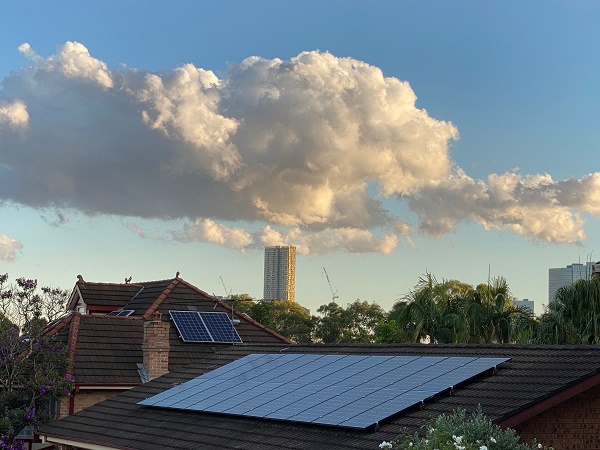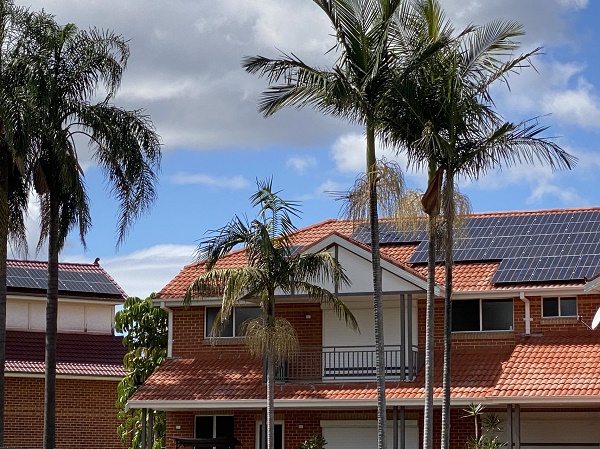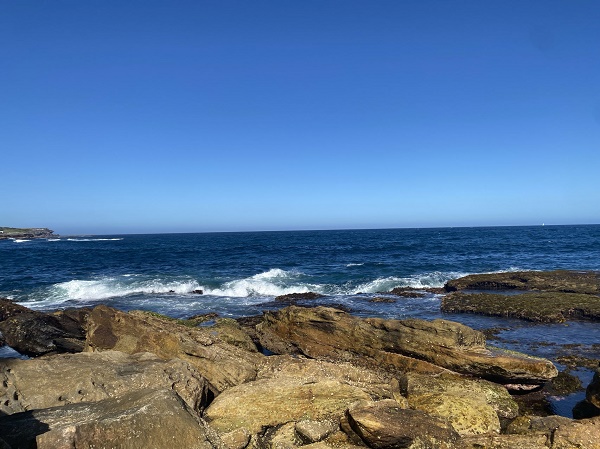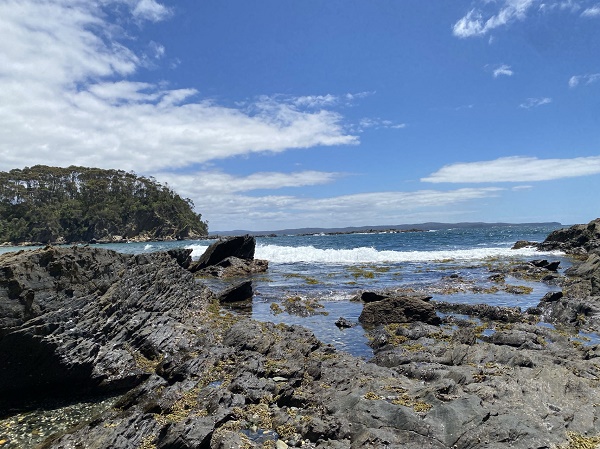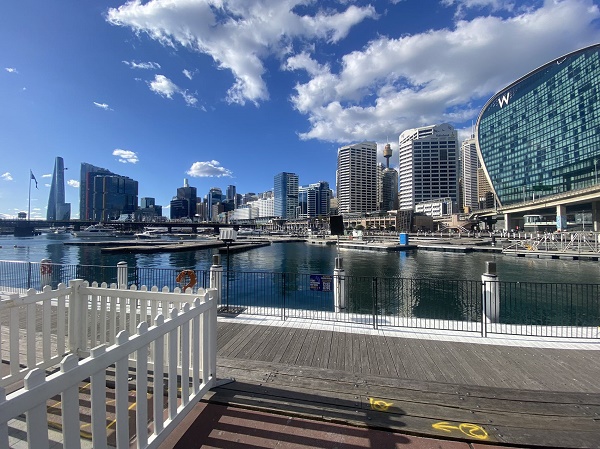1. 8月10日:人口普查夜!
今年是澳洲五年一次的人口普查年,官方宣布“人口普查夜”定在8月10日。
人口普查是澳大利亚数据统计局(Australian Bureau of Statistics)进行的关于澳大利亚境内所有个人和家庭的问卷调查。
人口普查问的问题包括年龄、出生地、宗教信仰、血统、在家说的语言、工作和受教育程度等,今年还增加了健康状况的问题。
凡是8月10日当天在澳大利亚境内的人士,无论他们是澳大利亚公民或永久居民,还是临时居民、留学生、游客,也无论他们的年龄——从婴儿到养老院中的老年人——都必须填写人口普查表格。
因此在填写人口普查表的时候需要的信息都应该以10日当晚的状况为准。
在海外的澳洲人无需完成人口普查。
没有及时完成人口普查的居民将会收到工作人员的提醒信和来访,但如果在收到提醒通告后仍拒绝进行人口普查,则可能将面临:罚款$222,按天计算!
人口普查表格的填写方式分为两种:网上填写和纸质表格填写。
统计局会给所有居民邮寄一封普查信,普查信中包括居住地点的人口普查号码(census number)和临时密码(temporary password),以供大家登陆网站进行填表。如果想要填写纸质表格,可以致电24小时自动纸质表格领取热线1800 130 250。
而住在酒店、露营地或者学生宿舍等场所的国际留学生和访客将收到纸质表格。填完表后,需要使用统计局提供的邮资已付的信封寄回。同时,纸质表格上也有如何在网上填表的说明。
如果你把这封信弄丢了,或者没有收到信件,可以拨打1800 512 441(澳大利亚统计局普查查询服务)进行询问。
如果能够确定10日当晚在家的人,那么在收到信件后就可以开始填表。如果普查日当天的情况和预先填写的内容不符,在网上填写的居民还可以进行修改。
人口普查表以住户为单位进行填写,每户只需派其中一人做代表填写当晚所有在家的人的信息即可。
2.居民常用出生地为什么没中国?答案来了!
在填写人口普查表格的过程中,很多华人朋友发现在询问居民出生地时,问卷答案中出现了澳大利亚、英国、意大利、印度、菲律宾等多个国家,唯独没有“中国”这一选项。
对于这一问题,很多网友觉得“不理解”、“很别扭”。更让人疑惑的是,这个问题下面还有对选项的说明:“所列国家是2016年人口普查中最常报告的出生国家”。
但是,根据澳大利亚数据统计局2016年人口普查数据显示,出生于中国(不包括特别行政区和台湾)的人所占的比例为2.2%,是位于英国和新西兰之后的第三位。
针对这一疑问,统计局其实早就给出了答案。在Country of Birth Standard网站上,官方解释中国未列入选项中是依据SACC(标准澳洲国家分类法)的要求,该标准认为中国可以被进一步细化成中国大陆、香港、澳门和台湾。
也就是说,当出现“中国”选项时,出生于中国不同地区的居民就会都选择这一选项,而这样的统计结果就会不够精确,影响后续的各种数据分析。
不过小编发现当你把自己的出生地写为China之后,后面关于父母出生地的问题的答案里就会出现China这一选项了。
3. 贴心!商圈小编为您翻译问卷!
为了帮助大家更快速、方便地完成人口普查任务,小编特地整理出一份中英文完整版人口调查表!
网上填写地址:
https://www.census.abs.gov.au/
首先,您需要点击“开始您的人口普查”按钮进入表格填写界面。
您可以通过普查号码(census number)和临时密码(temporary password)进行登陆。如果你不知道您的普查号码和临时密码,可以通过填写手机号码和住址获取账号和密码。
登陆之后就可以填写人口普查表了。本次人口普查表主要分为地址、居民、住宅三大部分。下面就和小编一起看看表格里都有些什么问题吧~
地址/Adress
第一部分只有一道题,就是您的地址。您需要填写完整的住址包括单元号、街道名称和街道号、所属地区和州/领地、邮政编码及建筑物名称(如果有的话)。
填写完成并确认后就进入到了下一板块:居民/People。
居民/People
您首先需要确定8月10日晚上在您家的所有人。
1、Who will spend the night of Tuesday 10 August 2021 at (your address)?
*Select all that apply.
·Me
·Spouse/partner
·Adult family members (including adult children, parents, siblings and extended family members)
·Babies, children, and teenagers
·Unrelated housemates, flatmates or boarders
·Visitors or friends who will spend the night of Tuesday 10 August 2021 in this dwelling
1 、在8月10日(星期二)晚上,谁将在你家?
*选择所有符合条件的。
·我
·配偶/伴侣
·成年家庭成员(成年子女、父母、兄弟姐妹和其他家庭成员)
·婴儿、儿童和青少年
·无关的室友或寄宿生
·将于8月10号在此住所过夜的访客或朋友
2、In total, how many people will spend the night of Tuesday 10 August 2021 at (your address)?
*Include any person who usually lives in this dwelling who will return on Wednesday 11 August 2021 without being included on a form elsewhere (for example, shift workers).
Number of people present:
2、在8月10日(星期二)晚上,一共有多少人会在你家过夜?
*包括任何常住在这里的人,他们将在2021年8月11日(星期三)返回并且没有被列入其他地方的表格中(例如,轮班工人)。
在场人数:
3、Who will be away on the night of Tuesday 10 August 2021, but usually lives at (your address)?
* "Usually lives" means the person has lived, or intends to live, at this address for a total of six months or more in 2021.
Select all that apply.
·People on vacation, including those who are overseas
·People away for work, in hospital or away for another reason overnight or longer
·People staying with relatives or friends
·Students away at boarding school
·Children in shared care arrangements staying elsewhere on Tuesday, August 10, 2021
OR
·No one is away
3、在常住在你家的人中,谁会在8月10日(星期二)晚上离开?
* “常住的人”是指该人在2021 年打算或已经在此地址总共居住了六个月或更长时间。
选择所有符合条件的。
·度假的人,包括在海外的人
·因为工作、住院或其他原因在外过一夜或居住更长时间的人
·与亲戚或朋友住在一起的人
·寄宿学校的学生
·2021年8月10日(星期二)在其他地方逗留的共同照顾安排的儿童
或者
·没有人离开
4、In total, how many people will be away on the night of Tuesday 10 August 2021 but usually live at (your address)?
*If no one will be away on Census night, enter "0".
Number of departures:
4、共有多少通常住在你家的人会在8月10日(星期二)晚上离开?
*如果人口普查夜无人离开,请输入“0”。
离开人数:
接下来,您需要添加8月10日晚上在您家的所有人。然后分别完成每个人的调查表格。
填写完毕后,将会进入每个居民的详细信息填写。此部分包括个人资料、文化背景、健康和教育、收入、工作和档案六部分。
个人资料/Personal details
1、Is (your name):
*If these options do not describe the person, they can select something other than male or female.
·Male
·Female
1、您是:
*如果这些选项不能描述您,您也可以选择男性或女性以外的性别。
·男性
·女性
2、What is your date of birth?
*If date of birth is not known, please select 'Don't know date of birth' and provide your age.
Day: Month: Year:
OR
·Don't know date of birth Age:
2、您的出生日期是什么?
*如果不知道出生日期,请选择 "不知道出生日期 "并提供您的年龄。
日: 月: 年:
或
·不知道出生日期 年龄:
3、What is your current marital status?
*‘Married’ refers to registered marriages.
·Never married
·Widowed
·Divorced
·Separated but not divorced
·Married
3、您目前的婚姻状况是什么?
*'已婚'指的是已经登记结婚。
·从未结婚
·丧偶
·离异
·分居但未离婚
·已婚
4、Are you of Aboriginal or Torres Strait Islander origin?
*For people of both Aboriginal and Torres Strait Islander origin, select both 'Yes' boxes.
·No
·Yes, Aboriginal
·Yes, Torres Strait Islander
4、您是Aboriginal或Torres Strait岛的原住民吗?
*如果您同时是Aboriginal和Torres Strait岛的原住民,把“是的”选项都选上。
·不是
·是,Aboriginal
·是,Torres Strait岛民
5、Where do you usually live?
*For people who usually live in another country and who are visiting Australia for less than one year, select 'Other country'.
For other people, 'usually live' means the address at which the person has lived, or intends to live, for a total of six months or more in 2021.
For people who have no fixed or return address (for example, due to family conflict or eviction), select 'Elsewhere in Australia' and write 'None' in the 'Suburb/Locality' box.
For boarders at boarding school, provide the address of the boarding school or college.
·The address you previously filled in
·Elsewhere in Australia (please specify address)
·Other country
5、您通常在哪里生活?
*对于通常居住在另一个国家并且访问澳大利亚不到一年的人,请选择“其他国家”。
对于其他人,“通常居住”是指该人在 2021 年已居住或打算居住总共六个月或更长时间的地址。
对于没有固定地址的人(例如,由于家庭冲突或驱逐),请选择“澳大利亚其他地方”并在“郊区/地区”框中填写“无”。
对于寄宿学校的寄宿生,请提供寄宿学校或学院的地址。
·您之前填写的地址
·澳大利亚其他地方(请注明地址)
·其他国家
6、Where did you usually live one year ago (at 10 August 2020)?
*For people who had no usual address on 10 August 2020, select 'Elsewhere in Australia' and provide the address at which they were then living.
·The address you previously filled in
·Elsewhere in Australia (please specify address)
·Other country
6、您一年前(2020年8月10日)通常住在哪里?
*对于在2020 年 8 月 10 日不住在现居地址的人,请选择“澳大利亚其他地方”并提供他们当时居住的地址。
·您之前填写的地址
·澳大利亚其他地方(请注明地址)
·其他国家
7、Where did you usually live five years ago (at 10 August 2016)?
*For people who had no usual address on 10 August 2016, select 'Elsewhere in Australia' and provide the address at which they were then living.
·The address you previously filled in
·Elsewhere in Australia (please specify address)
·Other country
7、您五年前(2016年8月10日)通常住在哪里?
*对于在2016 年 8 月 10 日不住在现居地址的人,请选择“澳大利亚其他地方”并提供他们当时居住的地址。
·您之前填写的地址
·澳大利亚其他地方(请注明地址)
·其他国家
文化背景/Cultural background
1、Are you an Australian citizen?
*If the person holds dual citizenship and one is Australian, select ‘Yes, Australian citizen’.
·Yes, Australian citizen
·No
1、您是澳大利亚公民吗?
*如果此人拥有双重国籍且其中一个是澳大利亚人,请选择“是,澳大利亚公民”。
·是的,我是澳大利亚公民
·不是
2、In which country were you born?
*The countries listed were the most commonly reported countries of birth in the 2016 Census. For all other countries of birth, please select the 'Other (please specify)' option and enter the name of the country in the box.
·Australia
·England
·New Zealand
·India
·Philippines
·Vietnam
·Italy
·Other (please specify)
2、您出生在哪个国家?
*所列国家是2016年人口普查中最常出现的出生国家。对于所有其他出生国家/地区,请选择“其他(请说明)”选项并在框中输入国家/地区名称。
·澳大利亚
·英国
·新西兰
·印度
·菲律宾
·越南
·意大利
·其他(清注明):(如果在中国出生请填写:China)
3、In what year did you first arrive in Australia to live for one year or more?
Year:
OR
·Will be in Australia for less than one year
3、您是哪一年第一次来到澳大利亚并居住了一年或一年以上的?
年份:
或者
·到达澳大利亚还不到一年
4、In which country was your father born?
*If the person does not know their birth father, and has a second parent, please include the country of birth of the second parent here.
If the person has same-sex parents, include the country of birth of one of the two parents here.
This information is collected from everybody, even children whose parents have already provided their country of birth. This avoids making assumptions about family relationships.
·Australia
·England
·New Zealand
·India
·Philippines
·Vietnam
·Italy
·China
·Other (please specify)
4、您的父亲出生在哪个国家?
*如果您不知道他们的生父,并且有第二个父母,请在此处填写第二个父母的出生国家/地区。
如果您有同性父母,请在此处填写父母双方之一的出生国家/地区。
这些信息是面向每个人收集的,甚至包括父母已经提供了他们的出生国的儿童。这就避免了对家庭关系作出假设。
·澳大利亚
·英国
·新西兰
·印度
·菲律宾
·越南
·意大利
·中国
·其他(请注明):
5、In which country was your mother born?
*If the person does not know their birth mother, and has a second parent, please include the country of birth of the second parent here.
If the person has same-sex parents, include the country of birth of one of the two parents here.
This information is collected from everybody, even children whose parents have already provided their country of birth. This avoids making assumptions about family relationships.
·Australia
·England
·New Zealand
·India
·Philippines
·Vietnam
·Italy
·China
·Other (please specify)
5、您的母亲出生在哪个国家?
*如果您不知道他们的生母,并且有第二个父母,请在此处填写第二个父母的出生国家/地区。
如果您有同性父母,请在此处填写父母双方之一的出生国家/地区。
这些信息是面向每个人收集的,甚至包括父母已经提供了他们的出生国的儿童。这就避免了对家庭关系作出假设。
·澳大利亚
·英国
·新西兰
·印度
·菲律宾
·越南
·意大利
·中国
·其他(请注明):
6、Do you use a language other than English at home?
*If more than one language other than English, select the one that is used most often.
Include use of sign languages (for example, AUSLAN) in the 'please specify' box.
Include use of Aboriginal and Torres Strait Islander languages in the 'Yes, other (please specify)' box.
·No, English only
·Yes, Mandarin
·Yes, Arabic
·Yes, Cantonese
·Yes, Vietnamese
·Yes, Italian
·Yes, Greek
·Yes, other (please specify)
6、您在家里如果不使用英语的话还会使用哪些语言?
*如果英语以外的语言不止一种,请选择最常用的一种。
“请注明”框中包括手语的使用(例如 AUSLAN)。
在“是的,其他(请注明)”框中包括原住民和Torres Strait岛民语言的使用。
·没有,只有英文
·是的,普通话
·是的,阿拉伯语
·是的,粤语
·是的,越南语
·是的,意大利语
·是的,希腊语
·是的,其他(请注明):
7、How well do you speak English?
*Leave this question blank for people who cannot speak, or if the person is too young to speak.
·Very well
·Well
·Not well
·Not at all
7、您的英语说得有多好?
*对于不会说话的人或太小还不会说话的人,请将此问题空着。
·很好
·好
·不好
·不会说
8、What is your ancestry?
*Provide up to two ancestries only.
Examples of ‘Other ancestry’: Croatian, Serbian, Filipino, Tamil, Sinhalese, Hmong, Maori, Pitcairn, Australian South Sea Islander.
·English
·Irish
·Scottish
·Chinese
·Italian
·German
·Aboriginal
·Torres Strait Islander
·Australian
·Other ancestry 1 (please specify)
·Other ancestry 2 (please specify)
8、你的祖先是?
*最多只提供两个祖先。
“其他血统”的例子:克罗地亚人、塞尔维亚人、菲律宾人、泰米尔人、僧伽罗人、苗族人、毛利人、皮特凯恩、澳大利亚南海岛民。
·英国人
·爱尔兰人
·苏格兰人
·中国人
·意大利人
·德国人
·土著
·Torres Strait岛民
·澳大利亚人
·其他血统1(请注明):
·其他血统2(请注明):
9、What is your religion?
*Answering this question is OPTIONAL.
Examples of 'Other': Lutheran, Salvation Army, Judaism, Taoism, Atheism.
·No religion
·Catholic
·Anglican (Church of England)
·Uniting Church
·Islam
·Buddhism
·Presbyterian
·Hinduism
·Greek Orthodox
·Baptist
·Other (please specify)
9、您的宗教是?
*这个问题是可选择性回答的。
“其他”的例子:路德教、救世军、犹太教、道教、无神论。
·没有宗教信仰
·天主教
·圣公会(英格兰教会)
·联合教会
·伊斯兰教
·佛教
·长老会
·印度教
·希腊正东教
·浸信会
·其他(请注明):
健康和教育/Health and education
1、Do you ever need someone to help with, or be with them for, self-care activities?
*For example: doing everyday activities such as eating, showering, dressing or toileting.
·Yes, always
·Yes, sometimes
·No
1、您需要他人的帮助或者陪伴来照料自己吗?
*例如:进行日常活动,例如吃饭、淋浴、穿衣或上厕所。
·是的,总是需要
·是的,有时需要
·不需要
2、Do you ever need someone to help with, or be with them for, body movement activities?
*For example: getting out of bed, moving around at home or at places away from home.
·Yes, always
·Yes, sometimes
·No
2、您需要他人的帮助或者陪伴来进行需要移动身体的活动吗?
*例如:起床、在家里或离家有一段距离的地方走动。
·是的,总是需要
·是的,有时需要
·不需要
3、Do you ever need someone to help with, or be with them for, communication activities?
*For example: understanding, or being understood by, others.
·Yes, always
·Yes, sometimes
·No
3、您需要他人的帮助或者陪伴来与他人沟通吗?
*例如:理解或被他人理解。
·是的,总是需要
·是的,有时需要
·不需要
4、What are the reasons for the need for assistance or supervision?
*Select all applicable reasons.
·No need for assistance
·Short-term health condition (lasting less than six months)
·Long-term health condition (lasting six months or more)
·Disability (lasting six months or more)
·Old or young age
·Difficulty with English language
·Other reason
4、为什么您需要帮助?
*选择所有适用的原因。
·不需要帮助
·短期健康状况(持续不到六个月)
·长期健康状况(持续六个月或更长时间)
·残疾(持续六个月或更长时间)
·年纪大或年纪太小
·英语语言困难
·其他原因
5、Have you been told by a doctor or nurse that they have any of these long-term health conditions?
*Include health conditions that have lasted or are expected to last for six months or more.
Include health conditions that:
·may recur from time to time, or
·are controlled by medication, or
·are in remission.
Select all that apply.
·Arthritis
·Asthma
·Cancer (including remission)
·Dementia (including Alzheimer's)
·Diabetes (excluding gestational diabetes)
Heart disease (including heart attack or angina)
·Kidney disease
·Lung condition (including COPD or emphysema)
·Mental health condition (including depression or anxiety)
·Stroke
·Any other long-term health condition(s)
·No long-term health condition
5、有没有一声或者护士告诉您有任何以下的长期的健康问题?
*包括已经或预计将持续六个月或更长时间的健康状况。
包括以下健康状况:可能会不时复发;药物控制中;或处于缓和期。
选择所有符合条件的。
·关节炎
·哮喘
·癌症(包括缓和期)
·痴呆症(包括阿尔茨海默氏症)
·糖尿病(不包括妊娠糖尿病)
·心脏病(包括心脏病发作或心绞痛)
·肾脏疾病
·肺部疾病(包括 COPD 或肺气肿)
·心理健康状况(包括抑郁或焦虑)
·中风
·任何其他长期健康问题
·没有长期的健康问题
6、Are you attending a school or any other education institution?
*Include tertiary education and vocational education and training providers (e.g. TAFE and private training providers).
Include external, online or correspondence study.
·No
·Yes, full-time student
·Yes, part-time student
6、您是否在学校或任何其他教育机构上学?
*包括高等教育、职业教育及培训机构(例如TAFE和私人培训机构)。
包括外部、在线或函授学习。
·不是
·是的,全日制学生
·是的,非全日制学生
7、What type of education institution are you attending?
*Include secondary colleges and senior high schools under ‘Secondary school’.
For external, online or correspondence students, mark the type of institution in which they are enrolled.
·Preschool
·Primary school
·Secondary school
·Tertiary institution (e.g. University and vocational education and training, including TAFE and private training providers)
·Other education institution
7、您就读于什么类型的教育机构?
*“中学”包括中学和高中。
对于外部、在线或函授学生,请标记他们就读的机构类型。
·学前班
·小学
·中学
·高等教育结构(例如大学和职业教育与培训,包括TAFE和私人培训机构)
·其他教育机构
8、What is the highest year of primary or secondary school you have completed?
*For people currently at school, select the highest year of schooling they have completed, not the year they are currently undertaking.
·Year 12 or equivalent
·Year 11 or equivalent
·Year 10 or equivalent
·Year 9 or equivalent
·Year 8 or below
·Did not go to school
8、您完成的最高年份的小学或中学是什么?
*对于目前在校的人,选择他们完成学业的最高年份,而不是他们目前正在接受的年份。
·12 年级或同等级
·11年级或同等级
·10 年级或同等级
·9年级或同等级
·8年级或以下
·没有上学
9、Have you completed any educational qualification?
·No
·No, still studying for first qualification
·Yes, trade certificate/apprenticeship
·Yes, other qualification (certificate, diploma or degree)
9、您是否取得了一些教育资格/完成了任何学历?
·没有
·没有,仍在学习第一个资格证书
·是的,行业证书/学徒
·是的,其他资格(证书、文凭或学位)。
10、What is the level of the highest qualification you have completed?
*For example: Trade Certificate, Bachelor Degree, Associate Diploma, Certificate II, Advanced Diploma.
Level of qualification:
10、什么是您拿到的最高的资质证书/最高学历?
*例如:专业认证、学士学位、副学士、技术证明、高级专科文凭。
资格等级/学历:
11、What is the main field of study for your highest qualification completed?
*For example: Plumbing, Primary school teaching, Accounting, Hairdressing, Psychology, Hospitality.
Field of study:
11、您的最高学历的主要研究领域是什么?
*例如:水暖工程、小学教学、会计、美发、心理学、酒店管理。
研究领域:
12、Did you complete this qualification before 1998?
·Yes, before 1998
·No, 1998 or later
12、
您是在1998年之前完成这个学历的吗?
·是的,1988年之前
·不是,1988年之后
13、How many babies has Yiyang ever given birth to?
*Exclude adopted, foster and step children.
Number of babies:
13、您有几个孩子?
*排除领养、寄养和继子女。
孩子数:
收入/Income
1、What is the total of all income you usually receives?
*Do not deduct: tax, superannuation contributions, amounts salary sacrificed, or any other automatic deductions.
Include:
·Wages and salaries
Regular overtime
Commissions and bonuses
·Government pensions, benefits and allowances
·Profit or loss from:
Unincorporated business/farm (e.g. sole
traders, partnerships)
Rental properties
·Other income from:
Superannuation
Child support
Dividends from shares
Interest
Workers’ compensation
Any other income sources
·$3,500 or more per week
($182,000 or more per year)
·$3,000 - $3,499 per week
($156,000 - $181,999 per year)
·$2,000 - $2,999 per week
($104,000 - $155,999 per year)
·$1,750 - $1,999 per week
($91,000 - $103,999 per year)
·$1,500 - $1,749 per week
($78,000 - $90,999 per year)
·$1,250 - $1,499 per week
($65,000 - $77,999 per year)
·$1,000 - $1,249 per week
($52,000 - $64,999 per year)
·$800 - $999 per week
($41,600 - $51,999 per year)
·$650 - $799 per week
($33,800 - $41,599 per year)
·$500 - $649 per week
($26,000 - $33,799 per year)
·$400 - $499 per week
($20,800 - $25,999 per year)
·$300 - $399 per week
($15,600 - $20,799 per year)
·$150 - $299 per week
($7,800 - $15,599 per year)
·$1 - $149 per week($1 - $7,799 per year)
·$0 or nil income
·Negative income
1、你平时的总收入是多少?
*不要扣除:税款、退休金供款、牺牲的工资金额或任何其他自动扣除。
包括:工资和薪金(定期加班、佣金和奖金);政府养老金、福利和津贴;盈利或亏损(非法人企业/农场[例如个体经营者、合伙企业]、出租物业);其他收入来自(退休金、子女抚养费、股票分红、兴趣、劳动者报酬、任何其他收入来源)
·每周 3,500 元或更多
(每年 182,000 元或更多)
·每周 $3,000 - $3,499
(每年 156,000 元 - 181,999 元)
·每周 $2,000 - $2,999
(每年 104,000 元 - 155,999 元)
·每周 $1,750 - $1,999
(每年 91,000 元 - 103,999 元)
·每周 $1,500 - $1,749
(每年 78,000 元 - 90,999 元)
·每周 $1,250 - $1,499
(每年 65,000 元 - 77,999 元)
·每周 $1,000 - $1,249
(每年 52,000 元 - 64,999 元)
·每周 $800 - $999
(每年 41,600 元 - 51,999 元)
·每周 $650 - $799
(每年 33,800 元 - 41,599 元)
·每周 $500 - $649
(每年 26,000 元 - 33,799 元)
·每周 $400 - $499
(每年 20,800 元 - 25,999 元)
·每周 $300 - $399
(每年 15,600 元 - 20,799 元)
·每周 150 - 299 美元
(每年 7,800 元 - 15,599 元)
·每周 1 - 149 美元(每年 1 元 - 7,799 元)
·$0 或零收入
·负收入
工作/Work
1、Last week, did you have a job of any kind?
*A ‘job’ means any type of work including casual, temporary, part-time or full-time work, if it was for one hour or more.
·Yes, worked for payment or profit
·Yes, but absent on holidays, on paid leave, on ·strike, or temporarily stood down
·Yes, unpaid work in a family business
·Yes, other unpaid work
·No, did not have a job
1、上周您有什么工作吗?
*“工作”是指任何类型的工作,包括临时工、兼职或全职工作等时间大于等于一小时的工作。
·是的,为工资或利润工作
·是的,但在节假日、带薪休假、罢工或暂时停工时缺席。
·是的,家族企业的无偿工作
·是的,其他无偿工作
·不,没有工作
2、In the main job held last week, were you:
*If the person had more than one job last week, then ‘main job’ refers to the job in which the person usually works the most hours.
For all persons conducting their own business, including those with their own incorporated (e.g. Pty Ltd) company, as well as sole traders, partnerships and contractors, select ‘Working in own business’.
·Working for an employer
·Working in own business
2、在上周的主要工作中,您:
*如果您上周有不止一份工作,则“主要工作”是指您通常工作时间最长的工作。
对于所有经营自己业务的人,包括那些拥有自己注册成立的(例如 Pty Ltd)公司的人,以及个体经营者、合伙企业和承包商,请选择“在自己的企业中工作”。
·为雇主工作
·在自己的企业工作
3、Was your business:
*Incorporated means a limited liability company.
·Unincorporated
·Incorporated (e.g. Pty Ltd)
3、您的生意是:
*Incorporated 是指有限责任公司。
·未注册的公司
·有限责任公司(例如 Pty Ltd)
4、Does your business employ people?
*Exclude owner/s of the business.
No, no employees (other than owner/s)
Yes, 1 - 19 employees
Yes, 20 or more employees
4、您雇佣了其他人吗?
*排除企业的所有者。
·不,没有员工(所有者除外)
·是的,1 - 19 名员工
·是的,20 名或更多员工
5、Did you actively look for work at any time in the last four weeks?
*Full-time work means 35 hours or more per week.
Examples of actively looking for work include:
·Writing, telephoning or applying to an employer for work
·Having a job interview
·Checking or registering with an employment agency
·Taking steps to purchase or start a business
·Advertising or tendering for work
·Contacting friends or relatives in order to obtain work
·Answering an advertisement for a job
·No, did not look for work
·Yes, looked for full-time work
·Yes, looked for part-time work
5、在过去的四个星期里,您有没有积极找工作?
*全职工作意味着每周工作 35 小时或更多。
积极找工作包括:写信、打电话或向雇主申请工作;进行工作面试;在职业介绍所检查或登记;采取步骤购买或创办企业;为工作做广告或投标;为获得工作而与朋友或亲戚联系;应聘工作的招聘广告
·不,没有找工作
·是的,正在寻找全职工作
·是的,找兼职
6、If you had found a job, could they have started work last week?
·Yes, could have started work last week
·No, already had a job to go to
·No, temporarily ill or injured
·No, other reason
6、如果您找到了工作,他们能从上周就开始工作吗?
·能,上周就可以开始工作了
·不能,已经有工作要去了
·不能,暂时生病或受伤
·不能,其他原因
7、Have you ever served in the Australian Defence Force?
*Include Royal Australian Navy, Australian Army, Royal Australian Air Force, Second Australian Imperial Force, National Service and NORFORCE.
Exclude service for non-Australian defence forces.
Select all that apply.
·No
·Regular service
·Yes - current service
·Yes - previous service
·Reserves service
·Yes - current service
·Yes - previous service
7、您是否曾在澳大利亚国防军中服役?
*包括澳大利亚皇家海军、澳大利亚陆军、澳大利亚皇家空军、澳大利亚第二帝国部队、国民兵和NORFORCE。
不包括在非澳大利亚国防军服役。
选择所有适用的。
·没有
·定期服役:
·是--现役
·是的--以前服役过
·预备役:
·是的--现役
·是的--以前服役过
8、In the last twelve months did you spend any time doing unpaid voluntary work for an organisation or group?
*Include voluntary work for sporting teams, youth groups, schools or religious organisations.
Exclude work in a family business or paid employment.
Exclude work to qualify for a government benefit, to obtain an educational qualification or due to a community/court order.
·No, did not do any voluntary work
·Yes, did voluntary work
8、在过去的十二个月里,您有没有花时间为一个组织或团体做无偿的志愿工作?
*包括运动队、青年团体、学校或宗教组织的志愿工作。
排除家族企业的工作或有偿工作。
排除有资格获得政府福利、获得教育资格或社区/法院命令的工作。
·不,没有做任何志愿工作
·是的,做过志愿工作
9、In the last week did you spend time doing unpaid domestic work for their household?
*Include all housework, food/drink preparation and clean-up, laundry, gardening, home maintenance and repairs, and household shopping and finance management.
·No, did not do any unpaid domestic work in the last week
·Yes, less than 5 hours
·Yes, 5-14 hours
·Yes, 15-29 hours
·Yes, 30 hours or more
9、上周您花时间为家里做了无报酬的家务工作吗?
*包括所有家务、食物/饮料准备和清理、洗衣、园艺、家庭维护和修理以及家庭购物和财务管理。
·没有,上周没有做任何无偿家务
·是的,不到 5 小时
·是的,5-14 小时
·是的,15-29 小时
·是的,30 小时或更长时间
10、In the last two weeks did you spend time providing unpaid care, help or assistance to family members or others because of a disability, a long-term health condition or problems related to old age?
*People who receive Carer Allowance or Carer Payment should state that they provided unpaid care.
Occasional help or assistance, such as shopping, should only be included if the person needs this type of assistance because of their condition.
Do not include work done through a voluntary organisation or group.
·No, did not provide unpaid care, help or assistance
·Yes, provided unpaid care, help or assistance
10、在过去的两周里,您是否因为残疾、长期健康状况或与老年有关的问题而花时间为家人或其他人提供了无偿照顾或帮助?
*领取照顾者补助(Carer Allowance)或照顾者津贴(Carer Payment)的人应声明他们提供了无偿的照顾。
偶尔的帮助或协助(例如购物)只有在当事人因其状况而需要这种类型的帮助时才应包括在内。
不包括通过志愿组织或团体完成的工作。
·不,没有提供无偿照顾、帮助或协助
·是,提供无偿护理、帮助或协助
11、In the last two weeks did you spend time looking after a child, without pay?
Only include children who were less than 15 years of age.
Select all applicable responses.
More information
Person's unpaid care for children
No
Yes, looked after own child
Yes, looked after a child other than own child
11、在过去的两个星期您是否花时间无偿照顾了孩子?
*仅包括未满 15 岁的儿童。
选择所有适用选项。
·没有。
·是的,照顾自己的孩子
·是的,照顾自己的孩子以外的孩子
存档/Archive
1、Do you agree to their name, address and other information on this form being kept by the National Archives of Australia and then made publicly available after 99 years?
*Answering this question is OPTIONAL.
A Person's name-identified information will not be kept by the National Archives where a person does not agree or the answer is left blank.
Information provided to the National Archives will include answers to all questions on a Person's form, including which long-term health conditions a person has.
If you are filling in this section on behalf of someone else, please check before answering. Leave blank for people whose views are not known to you.
·Yes, agree
·No, does not agree
1、您是否同意自己的姓名、地址和这张表格上的其他信息由澳大利亚国家档案馆保存,然后在 99 年后公开?
*这个问题是可选择回答的。
*如果某人不同意或答案留空,国家档案馆将不会保留其姓名识别信息。
*提供给国家档案馆的信息将包括对个人表格上所有问题的回答,包括有哪些长期健康问题。
*如果您是代他人填写此部分,请在回答前与他核对。对于您不知道其观点的人,请留空。
·是的,同意
·不,不同意
接下来是住宅/Dwelling部分的内容。
住宅/Dwelling
1、How many registered motor vehicles owned or used by residents of this dwelling will be garaged or parked at or near (your dwelling) on the night of 10 August 2021?
*Include vans and company vehicles kept at home.
Exclude motorbikes, motor scooters and heavy vehicles.
Number of motor vehicles:
1、2021年8月10日晚,该住宅的居民拥有或使用的多少辆注册机动车将被停放在(你的地址)的车库或附近地方?
*包括存放在家中的货车和公司车辆。
不包括摩托车、电动车和重型车辆。
机动车辆的数量:
2、How many bedrooms are there at (your dwelling)?
*If the dwelling is a bedsitter or studio, enter '0'.
Number of bedrooms:
2、在(您的住址)有多少间卧室?
*如果住宅只是一张床或是单人间,请输入 "0"。
卧室的数量:
3、Is the dwelling:
*Include owners of caravans, manufactured homes or houseboats in ‘Owned with a mortgage’ or ‘Owned outright’ regardless of whether or not the site is owned.
A shared equity scheme is a government or not-for-profit scheme - assisting people on lower incomes to buy a home by sharing up to 30% of the ownership.
Life tenure schemes are a common arrangement in retirement villages. Include leaseholds, and loan and license agreements in ‘Occupied under a life tenure scheme’.
·Owned outright
·Owned with a mortgage
·Purchased under a shared equity scheme
·Rented
·Occupied rent free
·Occupied under a life tenure scheme
·Other
3、住宅是:
*包括在 "有抵押贷款拥有 "或 "完全拥有 "中拥有大篷车、人造房屋或船屋的业主,无论这些地方是否被占有。
共有产权计划是一项政府或非营利性计划--协助低收入者通过分享高达30%的所有权来购买房屋。
终身使用计划是退休村的一种常见安排。包括在"终身使用计划保证其居住权"中的租赁、贷款和许可协议等。
·直接拥有
·有抵押贷款的房子
·根据共有产权计划购买的
·租用
·免租居住
·根据终身使用计划居住的
·其他
4、Who is your dwelling rented from?
*For all state/territory specific Government housing authorities, select ‘Government Housing Authority/Housing Department (Public Housing)’.
Some examples of Government housing authorities are: DCJ Housing (NSW), HousingVic, Department of Housing and Public Works (Qld), Department of Communities (WA), Housing SA, Housing Tasmania, Department of Local Government, Housing and Community Development (NT), Housing ACT, Aboriginal housing authorities.
Community Housing Providers are not-for-profit organisations that provide affordable rental housing to people on lower incomes. This includes housing co-operatives.
·Real estate agent
·Government Housing Authority/Housing ·Department (Public Housing)
·Community housing provider
·Parent or other relative not in this dwelling
·Other person not in this dwelling
·Manager of a residential park (including caravan parks and manufactured home estates)
·Employer – government (including Defence Housing Australia)
·Employer – private
4、您的住房是向谁租的?
*对于所有州/地区的政府住房管理局,请选择 "政府住房管理局/住房部(公共住房)"。
政府住房管理局的例子有: DCJ Housing (NSW), HousingVic, Department of Housing and Public Works (Qld), Department of Communities (WA), Housing SA, Housing Tasmania, Department of Local Government, Housing and Community Development (NT), Housing ACT, Aboriginal housing authorities.
社区住房提供者是为低收入者提供可负担的租赁住房的非营利性组织。这包括住房合作社。
·房地产代理
·政府住房管理局/住房部门(公共住房)
·社区住房提供者
·父母或其他不在此居所的亲属
·其他不在此住宅内的人
·住宅公园(包括大篷车公园和人造房屋庄园)的管理者
·雇主--政府(包括澳大利亚国防部住房)。
·雇主--私人
5、How much does the household pay for your dwelling?
*Include rent and mortgage repayments and site fees if the dwelling is a caravan or manufactured home in a caravan park or manufactured home estate.
Exclude water rates, council rates, repairs, maintenance, body corporate and other fees.
If no payments, please select '$0 or Nil payments'.
·$ .00 per week
OR
·$ .00 per fortnight
OR
·$ .00 per month
OR
·$0 or Nil payments
5、您为您的住宅支付了多少钱?
*包括租金和抵押贷款的偿还,如果住宅是大篷车公园或人造房屋区的大篷车或人造房屋,还包括场地费。
不包括水费、市政费、修理费、维护费、法人团体和其他费用。
如果没有付款,请选择 "0元或无付款"。
·每周$ .00
或
·每两周$ 0.00
或
·每个月$ .00
或
·$0或无支付
回答完这个问题,您就可以点击“Submit”来提交您的人口调查表格。提交成功之后您就完成了本次人口调查的任务!
文章来源:澳中商圈






